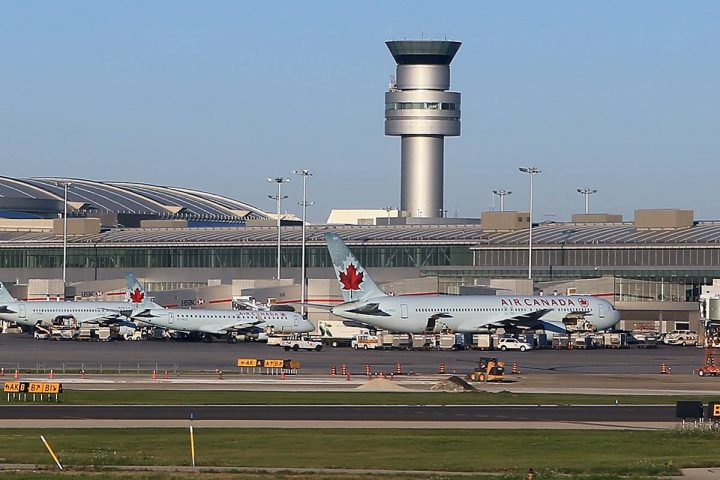A woman who lost her job at Toronto’s Pearson International Airport because of her family’s alleged links to organized crime could have her security clearance restored after a federal judge found it had been unreasonably revoked.

Florija Imerovik had her transportation security clearance revoked by Transport Canada’s director general of aviation security in July of last year, causing her to lose her job as a security screening officer at Pearson.
The government’s decision was based on RCMP reports that Imerovik’s husband, son and a former lodger had associated with known members of Albanian organized crime groups.
On Aug. 18, Federal Court judge Robert Barnes overturned Transport Canada’s decision, saying officials had done a “cursory and sloppy review” of the RCMP evidence against Imerovik and her case should be re-evaluated.
Court documents show Imerovik was given transportation security clearance in 2002 and had it renewed at five-year intervals, most recently in 2012.
The documents show that at some point, Transport Canada asked the RCMP to perform additional security checks on Imerovik.
Investigators alleged Imerovik’s husband and son had associated with known members of Albanian organized crime groups on several occasions, including one instance three years ago in which her husband reportedly attended a funeral for an “executive” gang member.
They also reported that Imerovik’s husband was charged in 1991 with possession of property obtained by crime, forgery and uttering forged documents, but that those charges had been stayed.
Her son was charged in 2010 with assault causing bodily harm and assault with a weapon but those charges were later dismissed, RCMP reported. He has outstanding charges related to credit card fraud under $5,000.

Get daily National news
The RCMP also said the man believed to have lived with Imerovik and her family was connected to Albanian organized crime and had also attended the 2013 gang member funeral.
Court documents show Imerovik’s husband and son both deny links to organized crime.
Imerovik, meanwhile, has said the man who supposedly lived with her family merely used their home as a mailing address during a separation from his spouse, but never actually resided in the home. She also said he was an acquaintance, not a close associate, court documents show.
In March 2015, the Transportation Security Clearance Advisory Body, which advises transportation officials on whether to grant or withdraw security clearance, recommended that Imerovik’s be revoked due to the evidence in the RCMP’s report.
Four months later, Transport Canada’s head of aviation security officially revoked Imerovik’s clearance, writing that “Imerovik’s very close association to three individuals, who are associated with an Albanian organized crime group, raised concerns regarding her judgment, trustworthiness and reliability.”
The revocation document also said that “on the balance of probabilities” Imerovik “may be prone or induced to commit an act, or assist or abet an individual to commit an act that may unlawfully interfere with civil aviation.”
In his decision this month, the federal judge said the government’s transportation security clearance policy states that a person can lose their clearance if they are associated with people accused of serious violent crime against people or property or members of an organization engaged in such crimes.
But, he added, “nothing in the RCMP report supported such a belief” about Imerovik or her husband and son.
Barnes also said there had been no effort on the part of government officials to verify whether the man with alleged gang connections ever really lived in Imerovik’s home.
Furthermore, he said, the advisory body made errors in its interpretation of the RCMP investigation.
In its recommendation to revoke Imerovik’s clearance, the panel incorrectly refers to the man who lived with her family as having a criminal record, though the RCMP report never suggests he had ever been charged or convicted of anything, Barnes said.
The recommendation also incorrectly said Imerovik’s son had been charged with certain crimes that the RCMP had actually linked to someone else.
“In the face of the poor quality of the advisory body report and the thinness of the reasons given by the director general, I find (the revocation) to be unreasonable and it is set aside,” Barnes said.
He said Imerovik could have her case re-examined by a party other than the advisory body and awarded her $2,250 in court expenses.
Transport Canada declined to comment on the case.







Comments